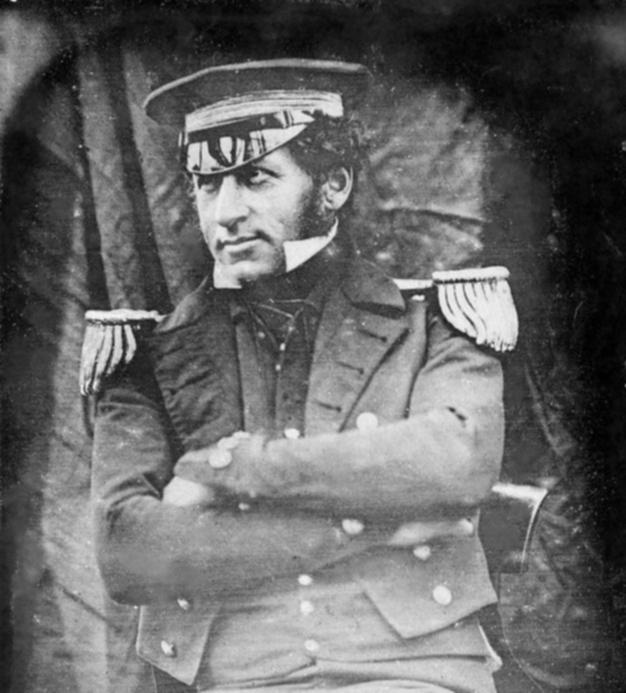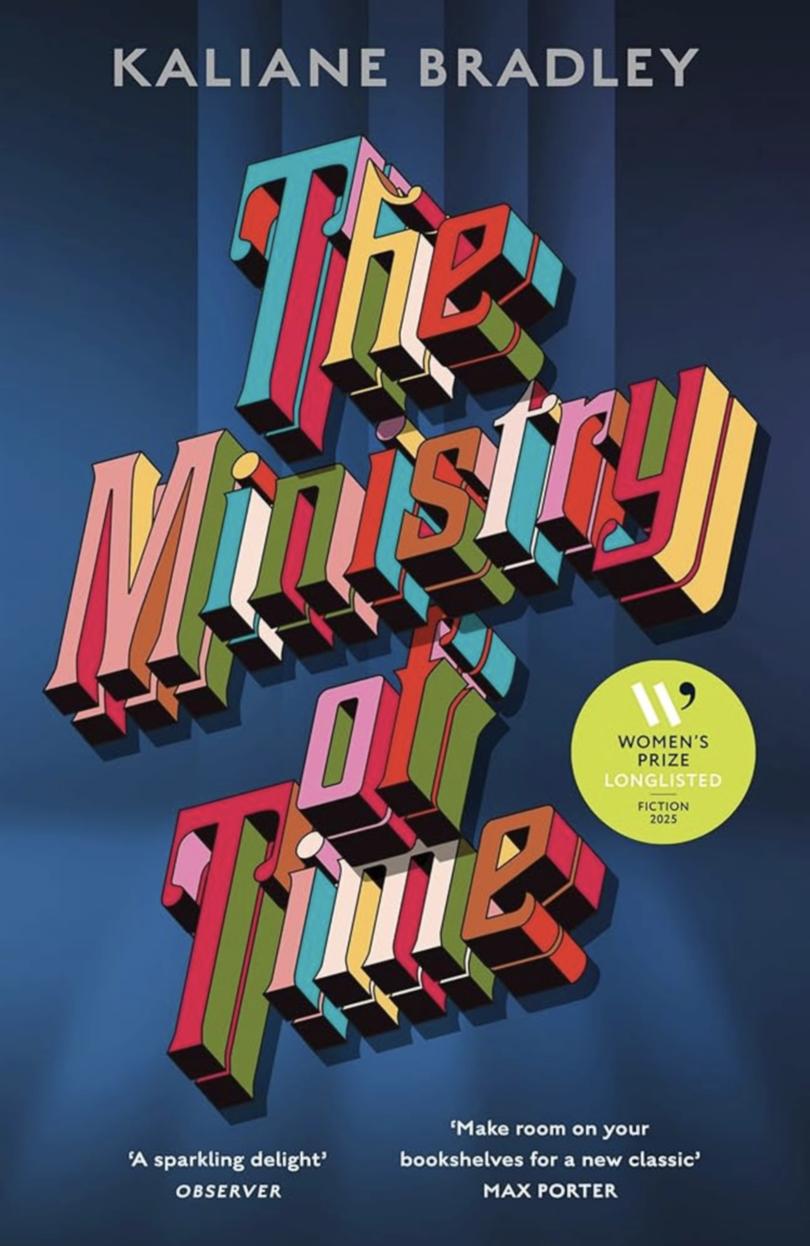The Ministry of Time’s Kaliane Bradley turned a weird crush on a dead guy into a bestseller
British novelist Kaliane Bradley hit the big time with her first book, a cross-genre story about a 19th century naval officer in 21st century London.

Have you ever had a crush on a fictional person?
Or if not fictional, then historical or a huge celebrity. The key is, they’re unattainable. No matter what fantasies we may harbour about Mr Darcy, Sophia Loren or, if you had certain predilections, say, Napoleon Bonaparte, they only ever live on in our heads.
For British writer Kaliane Bradley, her crush was a long-dead 19th century polar explorer named Commander Graham Gore. What a name. Also, what a picture, all mutton chops, wry smile and easy confidence.
Sign up to The Nightly's newsletters.
Get the first look at the digital newspaper, curated daily stories and breaking headlines delivered to your inbox.
By continuing you agree to our Terms and Privacy Policy.Bradley came across Gore during the pandemic after she went down an internet rabbit hole about the infamous lost Franklin expedition, during which 129 officers and crew in search of the Northwest Passage were never seen again.
It had been the subject of a TV drama called The Terror but on the series, Gore had barely been a footnote, killed off in the second episode.

He would become a much bigger deal after the publication of Bradley’s debut novel, The Ministry of Time. Released in 2024, her book took the publishing world by storm.
It ended up on cultural tastemaker Barack Obama’s summer reading list and had at least 21 production companies bidding for the screen adaption, ultimately picked up by A24 and commissioned by the BBC for a six-part series. At least half your friends read it.
The story is set in a near-future London and the British government has discovered the technology for time travel, using it to bring forth a handful of people from throughout history, those that were about to die, so as to not trigger the grandfather paradox.
Gore is one of them, and the conceit could be boiled down to, how would a naval officer from the Victorian era contend with Spotify and universal suffrage? The fish-out-of-water story also takes in elements of a spy thriller, exploration of colonialism and displacement, and, significantly, a romance with his “bridge”, an unnamed woman who helps him to acclimate to his surroundings.
In writing Gore, who has not been widely studied, Bradley did copious research, trying to get a sense of how he could be physically embodied in the 21st century. “It’s funny to me now, to remember how determined I was to feel like I was getting it right, and I was imagining him realistically, almost as if I did it enough, he’d come back to life,” she told The Nightly.
That’s the crush talking. The Ministry of Time didn’t start life as a “serious literary project”, it was born out of stories she had penned for her friends and an online communities of polar exploration fanboys.

Perhaps that’s why it has so much verve and ease, because Bradley wasn’t thinking about its commercial prospects or an imaginary audience of hundreds of thousands of strangers.
“It’s very obviously quite un-self-conscious in a way that is dazzling to me now, like, ‘Oh, you just really went out there and went on and on about how much you fancy this man!,” she said with a laugh.
“If you told me this was going to be my first novel, I would’ve been like, ‘No, how embarrassing, we are not going on a tour around Australia talking about that, we’re not doing that’.”
She revealed she had to be persuaded many times by her agent to take the project seriously, and to take herself seriously. “All of these things that would’ve maybe haunted me if I’d been imagining writing for an audience were null and void. I didn’t worry about disappointing people”.
The anonymity and carefree nature that process is something that’s been lost as she writes her second novel, which Bradley admitted has been “very difficult”. She has handed in her first draft, and the first set of notes were “sobering, but not devastating”.
There are too many voices and expectations now that the gaze is on her. “I meet readers and they’re very nice to me, and I was reading a lot of the reviews when they first came in, and they were broadly extremely nice,” she explained. “The result is that I keep thinking, ‘These people are so kind to me, I must make sure I don’t disappoint them”.
The Ministry of Time had nine drafts before it was published. Her first draft was written in the second-person, and, “my agent was like, ‘I’m begging you to not do this, I can’t sell this’,” so there’s still a long runway ahead of her.
But there’s one thing that sounds very promising for all the Ministry fans who will blush at the memories of Gore and the bridge’s intimate encounters. “My agent assures me that (the second book) contains the best sex scene I’ve ever written,” she confided.

That heady cross-pollination of genres – the sci-fi thriller, the romance, the espionage mystery – and the expertly balanced mix of tones (the book is, at times, very funny), makes The Ministry of Time far more than what could’ve been an elevated fan fiction project. After all, what is online fan fiction if not a manifestation of a parasocial relationship?
There are still parts of the British literary establishment that would place genre in one place and literary fiction in another, Bradley argued. But then those people would miss out on some of the greats, including her major influence, Terry Pratchett.
“Or Ursula Le Guin, who, to me, is very, very clearly a literary, deeply philosophical, well-read writer who works in sci-fi and fantasy,” Bradley said,
“I was thinking specifically about this with John le Carre, who, again, if you look at his old covers from the 80s and 90s, they look schlocky, and he writes compellingly and it’s pleasurable. He is such a stylist and his complexity and depth is actually joyous to see.
“I hope that we are feeling as a literary ecosystem, perhaps slightly more open to the tools of genre, and that genre is not feeling as if they are losing writers to this crossover shift, but, in fact, having an expanding horizon.”
Which is to say a cross-genre story born out of a crush on a dead explorer is absolutely a worthy pursuit for a literary debut.
Kaliane Bradley is appearing at the Sydney Writers Festival on May 22 and 23

